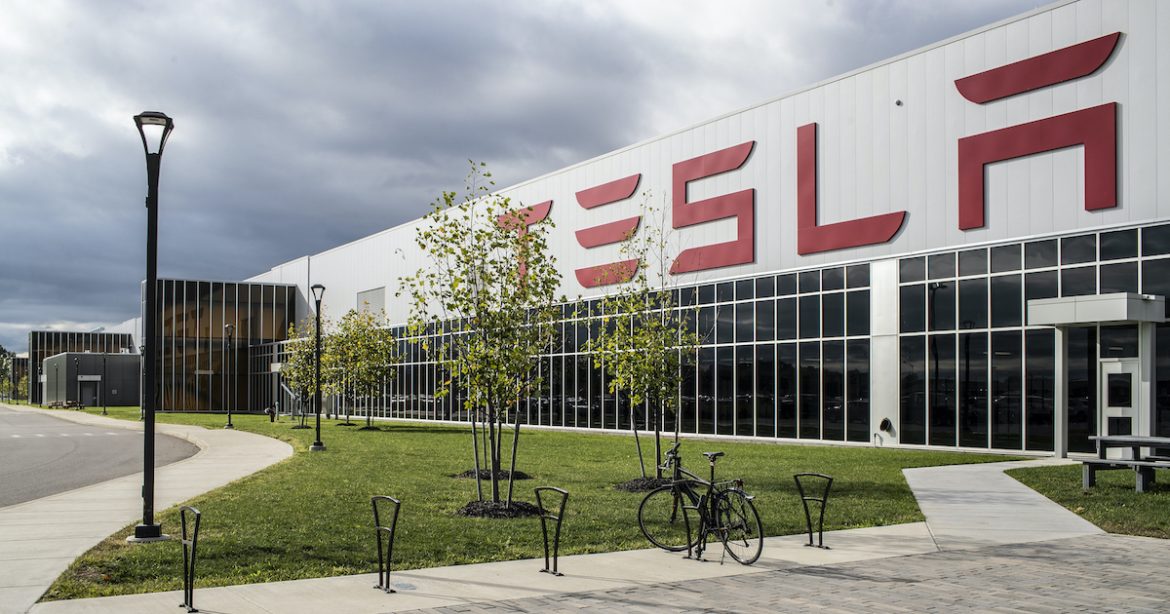Tesla, Inc. (NASDAQ: TSLA) has seen its stock price soar to unprecedented heights, reflecting its dominant position in the electric vehicle (EV) market and its broader impact on the automotive and energy sectors. This growth can be attributed to several key factors, including technological innovation, production expansion, and market dynamics.
Technological Innovation and Product Leadership
Tesla’s commitment to technological innovation is a primary driver of its stock price growth. The company’s EVs, renowned for their performance, range, and advanced features, have set new standards in the automotive industry. Tesla’s proprietary battery technology, particularly its advances in lithium-ion battery efficiency and cost reduction, has given it a competitive edge.
The development of Tesla’s Full Self-Driving (FSD) software is another significant factor. While the rollout has faced regulatory and technical challenges, the potential of autonomous driving represents a substantial revenue opportunity. Tesla’s over-the-air software updates and its integrated approach to hardware and software development have kept it at the forefront of automotive technology.
Production Expansion and Global Market Penetration
Tesla’s aggressive expansion of its production capacity has also contributed to its stock price surge. The company has successfully ramped up production at its Gigafactories in Nevada, Shanghai, and Berlin, with another factory underway in Texas. This expansion has enabled Tesla to increase its vehicle deliveries, meeting the growing global demand for EVs.
The Shanghai Gigafactory, in particular, has been instrumental in Tesla’s penetration of the Chinese market, the largest automotive market in the world. Tesla’s ability to produce vehicles locally has helped it avoid tariffs and reduce costs, making its EVs more competitive in China.
Financial Performance and Profitability
Tesla’s financial performance has been another key factor. The company has consistently reported strong revenue growth and has achieved profitability on a GAAP basis, which has been a significant milestone for investors. Tesla’s ability to generate substantial free cash flow and its improving margins have bolstered investor confidence.
The company’s quarterly earnings reports have often exceeded analyst expectations, leading to positive stock price reactions. Tesla’s growing energy business, including solar and energy storage solutions, has diversified its revenue streams and further strengthened its financial position.
Market Dynamics and Investor Sentiment
The broader market dynamics have also played a role in Tesla’s stock price appreciation. The global shift towards sustainable energy and the increasing regulatory support for EVs have created a favorable environment for Tesla. Governments around the world are implementing stricter emissions standards and offering incentives for EV adoption, which benefits Tesla as a market leader.
Investor sentiment towards Tesla has been overwhelmingly positive, driven by the company’s visionary leadership and its potential to disrupt multiple industries. CEO Elon Musk’s ambitious goals, such as achieving fully autonomous driving and colonizing Mars, have captivated investors and fueled speculation about Tesla’s future growth prospects.
Conclusion
Tesla’s stock price growth is underpinned by its technological innovation, production expansion, strong financial performance, and favorable market dynamics. As the company continues to push the boundaries of what is possible in the automotive and energy sectors, it is well-positioned to maintain its leadership and deliver sustained value to its shareholders.
References:
- Tesla, Inc. (2023). Tesla Investor Relations. Link
- Yahoo Finance. (2023). Tesla, Inc. (TSLA) Stock Price, News, Quote & History. Link
- MarketWatch. (2023). Tesla Inc. Link
- CNBC. (2023). What’s Behind Tesla’s Stock Surge?. Link
- Reuters. (2023). Tesla’s Production Expansion and Market Impact. Link


